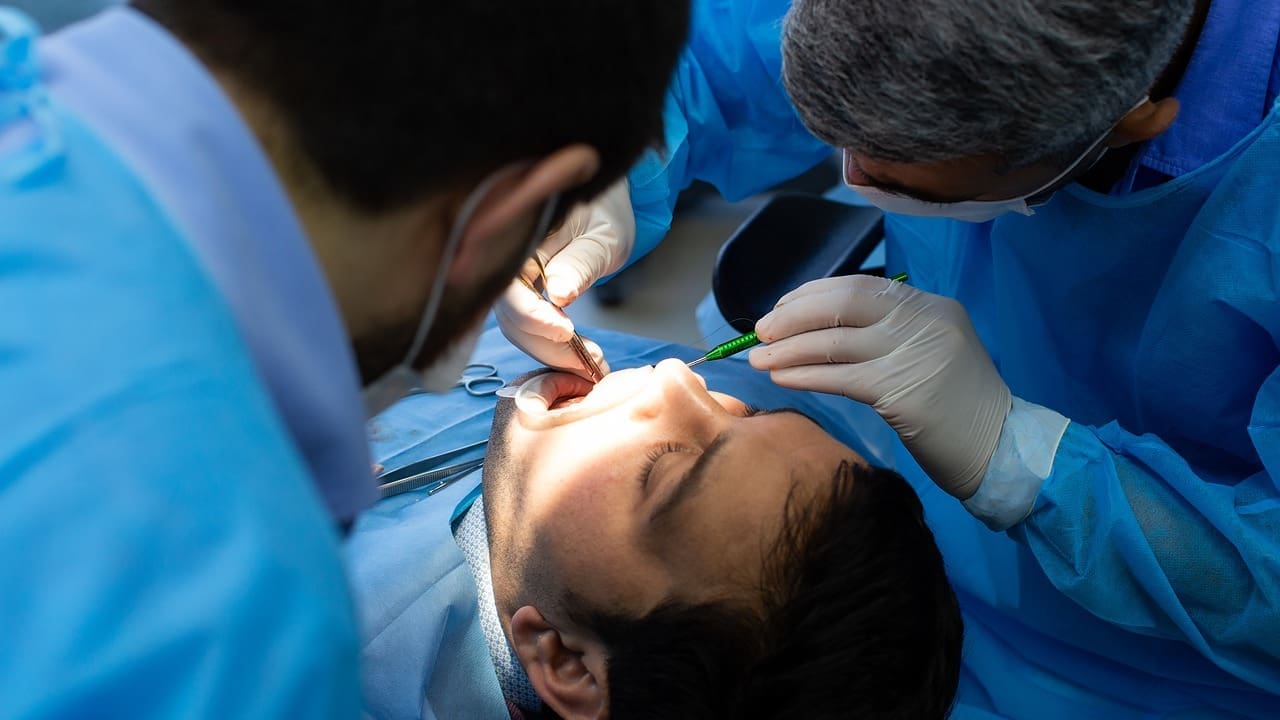Last Updated on November 27, 2025 by Bilal Hasdemir

Healthcare is changing fast, thanks to new tech in radiation medicine. As more people live longer and tech gets better, we need more experts in this area. The U.S. Bureau of Labor Statistics says jobs for radiologic and MRI technologists will grow 6% from 2023 to 2033. This shows how strong the career growth in radiation and medicine is.
Jobs in radiation medicine include radiologic technologists, radiation therapists, and medical physicists. They work together to give top-notch care. At places like Liv Hospital, we mix technology, care, and science to lead in medical radiation.
Key Takeaways
- Rapid growth in radiation medicine careers is due to the aging population and technological advancements.
- Diverse career paths are available, including radiologic technologists and medical physicists.
- Increasing demand for professionals in radiation medicine.
- Integration of technology and patient care is key in radiation medicine.
- Leading institutions drive innovation and excellence in the field.
Understanding Radiation Medicine: Applications and Career Landscape

Radiation medicine is a growing field in healthcare. It has many uses and is in high demand. We look at how it helps in diagnosis and treatment.
What Constitutes Radiation Medicine in Modern Healthcare
Radiation medicine includes many specialties. It uses radiation for both diagnosis and treatment. Key areas are radiation oncology, diagnostic radiology, and nuclear medicine.
These fields are vital for treating diseases, like cancer. They use imaging and therapy. A leading expert says, “Radiation oncology is key in cancer treatment, helping many patients.”
“Radiation oncology is a highly technical and rapidly evolving field that requires a deep understanding of radiation physics, radiobiology, and clinical oncology.”
Industry Growth Drivers and Future Outlook
The industry is growing due to more cancer cases, new tech, and an aging population. The need for radiation oncologists is rising. A report notes a global shortage of radiation experts.
| Industry Driver | Description | Impact |
| Increasing Cancer Incidence | Rising cases of cancer globally | Higher demand for radiation therapy |
| Technological Advancements | Improvements in radiation therapy technologies | More precise and effective treatments |
| Aging Population | Growing elderly population | Increased need for diagnostic and therapeutic services |
Radiation medicine is getting better, with new treatments and tests. This growth means more jobs and chances for growth in the field. The future looks bright for those in radiation medicine.
Radiologic and MRI Technologists: Diagnostic Imaging Specialists

Radiologic and MRI technologists play a key role in healthcare. They help doctors diagnose and treat patients. Their skills in using imaging equipment let doctors see inside the body. This helps in making accurate diagnoses and treatment plans.
Core Responsibilities and Workplace Settings
These technologists prepare patients for scans, position them, and run the machines. They work with doctors to get the best images. You can find them in hospitals, imaging centers, and clinics.
Being a radiologic or MRI technologist is more than just technical skills. It also needs good communication and caring for patients. Their work helps diagnose many health issues, like injuries and diseases.
Employment Growth Statistics and Salary Expectations
The U.S. Bureau of Labor Statistics says there will be a 6% growth in jobs for these technologists by 2033. This is because more people need imaging services as they get older. Salaries vary based on location, experience, and employer.
In May 2023, the median salary was $62,760. Those with more experience or specialized skills, like MRI, can earn more, mainly in areas with high demand.
Academic Programs and Certification Requirements
To become a technologist, you usually need an associate’s degree or a certificate. You can find these programs in colleges, universities, and vocational schools. Some offer online or hybrid courses. For MRI specialization, you might need extra training and certification.
Certification is very important for these technologists. The American Registry of Radiologic Technologists (ARRT) offers certifications in radiography and MRI. To keep your certification, you must keep learning and follow professional standards. This ensures you’re always up-to-date with the latest in radiation science and imaging.
Diagnostic Medical Sonographers: Ultrasound Professionals
Diagnostic medical sonographers are key in healthcare. They use ultrasound equipment to see inside the body. Their work is vital for diagnosing and treating many health issues.
Key Duties and Specialization Options
These professionals operate ultrasound machines to get clear images of the body’s inside. Their main tasks include:
- Preparing patients for ultrasound procedures
- Operating ultrasound equipment to capture images
- Analyzing images to identify any abnormalities
- Maintaining patient records and reporting findings to physicians
Sonographers can specialize in different areas, such as:
- Abdominal sonography
- Obstetric and gynecologic sonography
- Vascular sonography
- Pediatric sonography
Specialization options allow sonographers to focus on areas that interest them most, which can enhance their career satisfaction and expertise.
15% Growth Projection and Compensation Analysis
The job of diagnostic medical sonographers is expected to grow 15% from 2023 to 2033. This is much faster than the average for all jobs. The growth is due to an aging population and the need for more diagnostic imaging.
Sonographers are well-paid for their work. The median salary is around $68,000. Experienced sonographers can earn over $90,000, depending on their specialization and location.
| Experience Level | Median Salary |
| Entry-Level | $55,000 |
| Mid-Level | $68,000 |
| Senior-Level | $85,000+ |
Educational Pathways and Accredited Training Programs
To become a diagnostic medical sonographer, one needs to complete an accredited program in sonography. These programs are found at community colleges and universities. They can lead to a certificate, associate’s degree, or bachelor’s degree.
These programs teach both theory and practical skills. This ensures graduates are ready for the job. The Commission on Accreditation of Allied Health Education Programs (CAAHEP) is a key accrediting agency for sonography programs.
We encourage those interested in sonography to look for accredited programs. This ensures they meet the necessary standards for education and training.
Medical Technologists in Radiation Sciences
Medical technologists are key in radiation sciences, pushing healthcare tech forward. They do complex tests, use advanced gear, and analyze data for patient care.
Laboratory Functions and Technical Expertise
These experts handle many lab tasks, like radiation safety monitoring and equipment calibration. Their skills make sure imaging and therapy are done right and safely.
They team up with healthcare groups to set and follow quality control measures. Their knowledge in handling radioactive stuff and using high-tech tools is essential in radiation medicine.
13% Industry Growth and Career Advancement
The need for medical technologists in radiation sciences is set to rise by 13% from 2023 to 2033. This is due to new medical tech and more healthcare needs from an aging population. This growth means more chances for career growth, like specializing in radiation medicine or leading labs.
As healthcare changes, medical technologists can explore many career paths. They can work in research, education, or training. Their skills are key to innovation and better patient care in radiation sciences.
Degree Programs and Specialized Certifications
To be a medical technologist in radiation sciences, you usually need a degree in medical technology or a related field. Many also get specialized certifications, like from the American Society for Clinical Pathology (ASCP) or the Nuclear Medicine Technology Certification Board (NMTCB).
These programs and certifications give medical technologists the skills and knowledge to do well. They show a dedication to keeping up with the latest in radiation sciences.
Radiation Therapists: Cancer Treatment Delivery Specialists
Radiation therapists play a key role in cancer care. They make sure treatments are given with precision and care. These skilled professionals are at the heart of cancer treatment.
Treatment Administration and Patient Care
Radiation therapists set up patients for treatment and run the equipment. They follow the doctor’s plan carefully. They also focus on patient care, which includes emotional support and answering questions.
Being a radiation therapist is more than just using equipment. It requires understanding patient needs and treatment plans. They must work accurately and pay attention to detail in their work.
| Key Responsibilities | Description |
| Patient Positioning | Ensuring accurate patient placement for treatment |
| Equipment Operation | Operating complex radiation therapy equipment |
| Treatment Verification | Verifying that treatments are delivered as prescribed |
Academic Requirements and Clinical Training Programs
To become a radiation therapist, you need an associate’s or bachelor’s degree. Clinical training is key to learning on the job.
Clinical training programs are vital. They mix theory with practical experience. This prepares students for the real world of radiation oncology.
Radiation therapists must get certified, often through the American Registry of Radiologic Technologists (ARRT). Getting certified can open more job opportunities.
Medical Physicists in Radiation Medicine
Medical physicists are key in radiation medicine. They make sure radiation is used safely and effectively in treatments. Their work helps improve healthcare technology and patient care.
Scientific Applications and Quality Assurance
Medical physicists work on many scientific projects. They help develop and use radiation therapy and imaging technologies. Their job is to make sure radiation is used correctly in medical procedures.
- Developing and implementing quality assurance protocols for radiation therapy equipment
- Researching to improve radiation therapy techniques and outcomes
- Collaborating with other healthcare professionals to ensure complete patient care
They also check that the radiation equipment is working correctly. This is key for patient safety and accurate medical diagnoses.
Career Outlook and Research Opportunities
The job outlook for medical physicists is good. There are chances for growth in both clinical and research areas. As radiation tech gets better, the need for skilled medical physicists will rise.
Key areas of research include:
- Improving radiation therapy techniques for cancer treatment
- Developing new diagnostic imaging technologies
- Enhancing radiation safety protocols
Medical physicists can help with important research. This research can greatly improve patient care and healthcare quality.
Graduate Programs and Professional Certification Pathways
To be a medical physicist, you usually need a graduate degree in medical physics or a related field. Getting certified is also important. The American Board of Radiology offers exams for medical physicists.
Key steps in becoming a medical physicist include:
- Pursuing a graduate degree in medical physics or a related field
- Gaining clinical experience through residency programs
- Obtaining professional certification
By following these steps, you can become a medical physicist. This path requires knowledge, skills, and credentials to succeed in this field.
Radiation Oncologists: Specialized Physician Careers
Cancer cases are rising, making skilled radiation oncologists more important than ever. These doctors use advanced radiation therapy to fight cancer. They aim to hit tumors hard while keeping healthy tissues safe.
Clinical Practice and Treatment Planning Expertise
Radiation oncologists check patients and plan their radiation treatments. They pick the best dose and method to treat tumors well. This helps avoid harm to healthy tissues.
New tech like IMRT and SBRT is changing radiation oncology. These tools help doctors give precise, effective treatments. This leads to better results for patients.
“The field of radiation oncology has evolved dramatically over the past few decades, with significant advancements in technology and treatment techniques. As a result, radiation oncologists are now able to offer highly personalized and effective cancer treatments.”
Physician Demand and Compensation Structure
More people are getting cancer, so we need more radiation oncologists. The Bureau of Labor Statistics says their jobs will grow 2% by 2030.
| Specialty | Median Annual Salary (USD) | Projected Growth Rate (%) |
| Radiation Oncologist | 411,000 | 2% |
| Medical Oncologist | 404,000 | 1% |
| Surgical Oncologist | 411,000 | 3% |
Medical School, Residency, and Fellowship Programs
To be a radiation oncologist, you need 11 years of education and training. This includes 4 years of medical school and 5 years of residency. You might also do fellowship programs.
Radiation oncologists must get certified by the American Board of Radiology. They need to keep learning and follow professional rules. This keeps them current with discoveries in radiation oncology.
Dosimetrists and Radiation Safety Officers
Dosimetrists and radiation safety officers are key in radiation medicine. They ensure radiation therapy is safe and effective. Their work is vital for patient safety.
Treatment Planning and Safety Protocol Development
Dosimetrists create treatment plans that target tumors safely. They use advanced software to plan radiation delivery. Radiation safety officers develop safety rules to protect everyone from radiation. They check these rules regularly.
We team up with doctors and other healthcare workers. This teamwork is key to safe and effective care.
Employment Prospects and Industry Importance
The need for dosimetrists and radiation safety officers is rising. The Bureau of Labor Statistics says radiation therapist jobs will grow 13% by 2030. This is because more people are getting cancer as they age.
| Profession | Median Salary (USD) | Growth Rate (%) |
| Dosimetrists | 120,000 | 13 |
| Radiation Safety Officers | 110,000 | 10 |
Certification Requirements and Educational Programs
To be a dosimetrist, you need a bachelor’s degree and MDCB certification. Radiation safety officers need a degree in a physical science or engineering. They might also get certified by the ABHP. You can study medical physics or health physics at places like the University of Kentucky.
Aspiring dosimetrists and radiation safety officers should look for accredited programs. They should also keep up with certification needs to be ready for their careers.
Conclusion: Choosing Your Career Path in Radiation Medicine
Radiation medicine offers many career paths for those who care deeply about patient care. Roles like radiologic technologists and radiation oncologists are key in diagnosing and treating diseases. Each role is essential to the field.
This field covers a wide range of careers, each with its own duties and needs. If you’re into the technical side of radiation therapy or the clinical work of radiation oncology, there’s a path for you. Your skills and interests can guide you.
Starting a career in radiation medicine means you’ll need to invest in education and training. We suggest looking into academic programs and certifications. They can help you reach your goals in this fulfilling field.
Choosing a career in radiation medicine means joining a field that’s growing and making a big difference in patient care. We hope this info has given you a good look at the career options in radiation medicine and medical radiation.
FAQ
What are the career paths available in radiation medicine?
You can choose from many careers, like radiologic technologists, radiation therapists, and medical physicists. There are also roles for radiation oncologists, dosimetrists, and radiation safety officers. Each one is key to helping diagnose and treat patients.
What is the role of radiologic technologists in radiation medicine?
Radiologic technologists use imaging tools like X-rays and MRI scanners. They help create detailed images for doctors to diagnose patients. They work with radiologists and other healthcare teams.
What are the educational requirements for a career in radiation therapy?
To be a radiation therapist, you need a bachelor’s or associate’s degree in radiation therapy. You also need to get certified by the American Registry of Radiologic Technologists (ARRT). Some jobs might ask for a master’s degree.
What is the demand for medical physicists in radiation medicine?
Medical physicists are in high demand because of new treatments and the need for accurate treatment plans. They work in research, teaching, and clinical settings.
How do I become a radiation oncologist?
To be a radiation oncologist, you must finish medical school and then a residency in radiation oncology. You might also need fellowship training. You’ll need to get certified by the American Board of Radiology (ABR).
What is the role of dosimetrists in radiation medicine?
Dosimetrists create and carry out radiation treatment plans. They work with radiation oncologists and medical physicists to make sure treatments are precise and effective.
What are the certification requirements for radiation safety officers?
Radiation safety officers need special training and a certification like the Certified Radiation Safety Officer (CRSO). This ensures they follow all rules and guidelines.
What is the growth outlook for careers in radiation medicine?
Careers in radiation medicine are growing. This is because of more older people, new medical tech, and more cancer cases. There are chances for career growth and advancement.
What are the salary expectations for radiation medicine professionals?
Radiation medicine professionals earn good salaries. Salaries vary based on the job, where you work, and your experience. They can make from $60,000 to over $400,000 a year.
How do I get started in a career in radiation medicine?
First, learn about the different careers, what education and certifications you need. Then, talk to people working in the field for advice. This will help you start a fulfilling career in radiation medicine.
References
- Dumitrescu, R. (2019). Enhancing career paths for tomorrow’s radiation oncologists. Frontiers in Oncology, 9, 414. https://pmc.ncbi.nlm.nih.gov/articles/PMC7084166/






